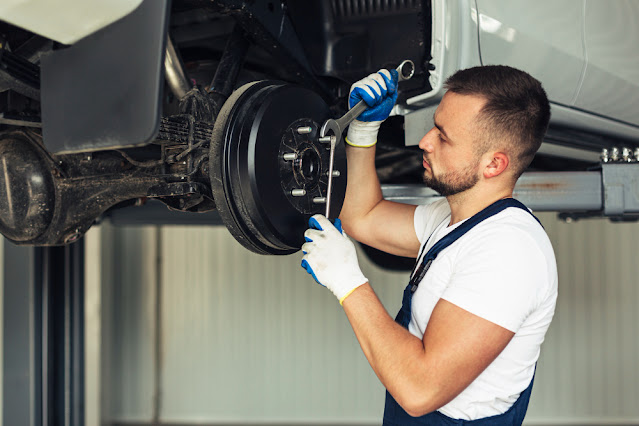All You Need to Know About Truck Suspension Repairs
When it comes to heavy-duty vehicles like trucks, a smooth and safe ride is paramount. The key to achieving this lies in the health of your truck's suspension system. The suspension system ensures that your truck's tires maintain proper contact with the road surface, even on rough terrain. Over time, wear and tear can take a toll on your truck's suspension, leading to discomfort, reduced performance, and safety concerns. In this blog post, we will explore the world of truck suspension repairs, providing valuable insights and guidance to keep your truck in optimal condition.
Understanding the Truck Suspension System
Before diving into the details of truck suspension repairs, let's take a moment to understand the components and functions of the suspension system.
Springs: Springs are the core components of the suspension system. They support the truck's weight and absorb shock from the road, providing a comfortable and controlled ride.
Shock Absorbers: Shock absorbers, also known as dampers, work in conjunction with springs to control the movement of the suspension. They prevent the truck from bouncing excessively after hitting a bump.
Struts: Struts are a structural part of the suspension system that combines the spring and shock absorber into a single unit. They play a vital role in maintaining alignment and stability.
Common Signs of Suspension Problems
Recognizing the signs of a failing suspension system is crucial to address issues promptly. Look out for these common symptoms:
Rough Ride: If you notice your truck feeling excessively bumpy or uncomfortable, it could be a sign of worn-out shocks or springs.
Uneven Tire Wear: Uneven tire wear can indicate improper suspension alignment. This not only reduces tire life but also affects handling.
Vehicle Pulling: If your truck pulls to one side when driving, it may indicate a suspension problem or your wheels might be out of alignment.
Knocking or Bouncing: Strange noises or a sensation of bouncing while driving are clear signs of suspension issues.
Difficulty in Steering: Difficulty in steering or a loose steering wheel could point to problems with the suspension system.
Truck Suspension Repairs
When repairing your truck's suspension, it's essential to work with a professional mechanic or a specialized truck repair shop. Here are some common truck suspension repairs procedures:
Replacing Springs: Worn-out or damaged springs can be replaced to restore ride quality.
Shock Absorber Replacement: If your truck's shocks are no longer effective, replacing them will improve handling and safety.
Strut Replacement: Damaged struts can lead to alignment issues and poor stability, necessitating replacement.
Wheel Alignment: Proper wheel alignment is essential to maintain even tire wear and stable handling. Suspension issues can often lead to misalignment.
Bushing Replacement: Worn-out bushings can lead to noise and vibration issues. Replacing them can restore comfort and quietness.
Preventive Maintenance
To extend the lifespan of your truck's suspension system and minimize the need for repairs, consider these preventive maintenance measures:
Regular Inspections: Schedule truck suspension repairs routine inspections to catch problems early.
Proper Lubrication: Ensure suspension components are well-lubricated to reduce friction and wear.
Weight Management: Avoid overloading your truck, as excessive weight can strain the suspension system.
Quality Parts: When replacing suspension components, use high-quality, durable parts to ensure longevity.
Conclusion
A well-maintained suspension system is essential for a smooth and safe ride in your truck. Recognizing the signs of suspension problems and addressing them promptly can prevent further damage and costly repairs. Whether you're a professional truck driver or a fleet manager, investing in the maintenance and truck suspension repairs of your truck's suspension system is a smart choice. Keep your truck in top shape, and you'll enjoy the benefits of a comfortable and reliable ride on the open road.

.jpg)
.jpg)

Nice Post Visit Us
ReplyDeleteCommercial truck repair
truck engine repair
Great breakdown of truck cooling system issues! At Kwik Kar Auto Dallas, we often encounter similar problems with cars, especially BMWs. Recognizing BMW coolant leak symptoms early can save drivers from costly repairs and prevent engine damage. Our Auto Repair Shop specializes in Car Repair Services and Car Repair and maintenance, ensuring thorough inspections and timely fixes. From routine Car Maintenance to complex Vehicle Repair, our Automotive Repair Services and trusted Car Repair Workshop keep vehicles running safely. If you notice signs like low coolant levels, overheating, or puddles under your car, addressing bmw coolant leak symptoms promptly is crucial for long-term performance and reliability.
ReplyDelete